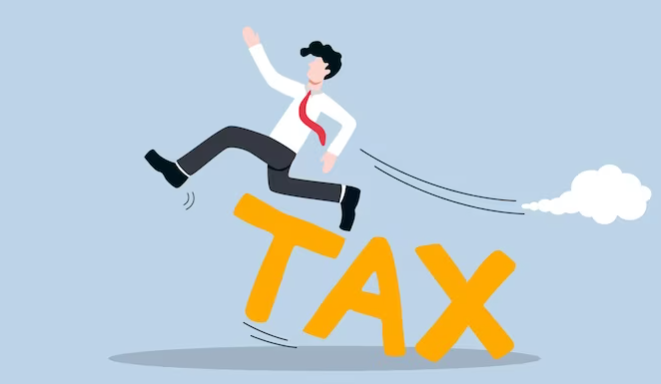Introduction:
Taxes can be quite overwhelming, and just when you thought you had everything figured out, along come new provisions to add to the confusion. Section 206AB and 206CCA are the latest additions to the Indian Income Tax Act, causing a stir among taxpayers. But fear not! In this blog post, we’ll break down these sections and demystify their complexities, using a conversational tone that aims to make the information more accessible and easier to understand. So, let’s dive in and unravel the mysteries of Section 206AB and 206CCA!
What Are Sections 206AB and 206CCA?
Section 206AB and 206CCA were introduced in the Income Tax Act to ensure that certain specified persons, who have not filed their income tax returns for a specified period or have filed with inadequate tax payments, face higher tax deductions at source (TDS) or tax collected at source (TCS). These provisions were enacted to encourage compliance and prompt taxpayers to fulfill their tax obligations in a timely manner.

Applicability of Section 206AB and 206CCA
Section 206AB applies to individuals and Hindu Undivided Families (HUFs) who have not filed their income tax returns for the previous two years and the total tax deducted or collected at source from them is Rs. 50,000 or more in each of these two years. On the other hand, Section 206CCA is applicable to non-residents and foreign companies who have not filed their income tax returns for the previous two years and the total tax deducted or collected at source from them is Rs. 50,000 or more in each of these two years.
The provisions of Section 206AB and 206CCA are applicable from July 1, 2021. It’s important to note that these sections apply in addition to the existing provisions of TDS and TCS, and the higher rates mentioned in these sections override the regular rates prescribed by the Income Tax Act.
Consult CA Arun Tiwari for more info at 📞 8080088288 or cs@aktassociates.com
Higher TDS/TCS Rates under Section 206AB and 206CCA
Under Section 206AB, if an individual or HUF falls under its purview, the applicable TDS rate will be the higher of the following: twice the rate specified in the relevant provisions of the Income Tax Act or twice the rate or rates in force, as per the Finance Act. This means that if the normal TDS rate is 10%, it will be doubled to 20% under Section 206AB.
Similarly, under Section 206CCA, the applicable TCS rate for non-residents and foreign companies will be higher than twice the rate specified in the relevant provisions of the Income Tax Act or twice the rate or rates in force, as per the Finance Act.
An Exception to Higher TDS/TCS Rates
While Section 206AB and 206CCA impose higher TDS/TCS rates, they do provide some relief. If the person falling under these provisions has furnished his or her income tax returns for the previous two years and the time limit for filing those returns has not expired, the higher rates will not be applicable.
Criteria for Higher TDS/TCS Rates
To determine whether higher TDS/TCS rates under Section 206AB and 206CCA are applicable, the tax deductor or collector should consider the Permanent Account Number (PAN) of the deductee or collected. If the PAN is available and valid, the higher rates will not be applicable. However, if the PAN is not available or has been declared invalid, the provisions of Section 206AB and 206CCA will come into play.

Practical Tips to Avoid Higher TDS/TCS Rates
Now that we have a better understanding of Section 206AB and 206CCA, let’s explore some practical tips to ensure you don’t fall into the higher TDS/TCS bracket:
- File your income tax returns on time: Timely filing of income tax returns is crucial to avoid the applicability of Section 206AB and 206CCA. Ensure you meet the deadlines and file your returns accurately.
- Keep your PAN updated: It’s essential to maintain an up-to-date PAN to prevent higher TDS/TCS rates. Verify that your PAN is valid and linked to your Aadhaar card to ensure smooth tax transactions.
Consequences of Non-Compliance
Non-compliance with the provisions of Section 206AB and 206CCA can have significant consequences. Taxpayers who fail to file their income tax returns within the prescribed timelines or furnish incorrect information risk facing higher TDS/TCS rates and penalties imposed by the Income Tax Department.
Seeking Professional Advice
Navigating the intricacies of tax provisions can be challenging, especially when it comes to new amendments like Section 206AB and 206CCA. If you find yourself in doubt or need assistance, it’s always wise to seek professional advice from a qualified tax consultant or chartered accountant. They can guide you through the process, help you understand your obligations, and ensure compliance with the relevant tax laws.
Conclusion
In conclusion, Section 206AB and 206CCA are provisions introduced to encourage tax compliance and prompt taxpayers to fulfill their obligations. While they may seem complicated at first, understanding their applicability, higher TDS/TCS rates, and exceptions can go a long way in ensuring a hassle-free tax season. By filing your income tax returns on time, keeping your PAN updated, and seeking professional advice when needed, you can navigate through these tax provisions with confidence. Remember, staying informed is the key to avoiding tax troubles!

